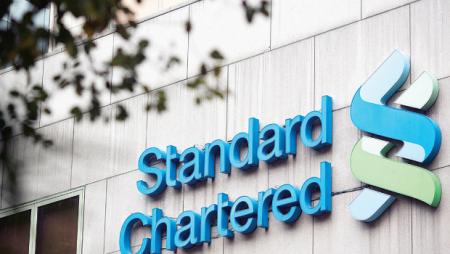Tue, May 14, 2013
by Bloomberg News
Baghdad: Banks in Iraq, where fewer than one in five people hold an account, are set for growth in earnings and assets as a surge in lending in Opec's second-biggest producer outpaces the region.
Standard Chartered plans to open branches this year in Baghdad and the city of Erbil, followed by a third next year in the oil hub of Basra, said a bank official who declined to be identified because of company policy. Total credit in Iraq amounts to nine per cent of gross domestic product, compared with an average of 55 per cent in the Middle East and North Africa, according to Singapore-based Sansar Capital Management, which runs a fund with $30 million invested in Iraqi equities.
"Earnings are really soaring in Iraq" despite the violence that occurs daily, Sansar President Sanjay Motwani said in an interview in Dubai. "Domestic credit growth in the last two years has been 89 per cent." Iraq's rising oil exports and a drop in the prime lending rate from 16.8 per cent in 2008 to six per cent today are feeding the expansion. The five largest privately owned banks boosted their combined net income by 207 percent from 2010 to 2012 and more than doubled earnings per share, according to a Sansar report on Iraqi banking. The International Monetary Fund forecasts the economy will grow nine per cent this year, the fastest pace, after Libya, among 18 countries in the region.
Iraq holds the world's fifth-largest proven oil deposits and is budgeting $118 billion in spending this year, up 18 per cent from 2012. The central bank, supported by the IMF, has stabilised the Iraqi dinar at about 1,170 to the dollar and has curbed inflation to single digits from a peak of 80 per cent in 2006. Foreign reserves stand at about $70 billion, up from $50 billion in April 2010. The Iraq Stock Exchange drew investors in February when mobile operator Asiacell Communications listed after a $1.3 billion share sale, in the Middle East's biggest initial public offering since 2008. The country's two other mobile operators, Zain Iraq and Korek Telecom, plan to list on the bourse soon to comply with their licence requirements.
Costs drop
The cost of insuring Iraqi debt against default for five years has fallen 154 basis points, or 1.54 percentage points, to a 14-month low of 367 on May 3 after reaching a six-year high on February 5, according to data provider CMA. The drop compares with an average decline of 12 basis points to 254 for the Middle East over the same period. Iraq's contracts were at 388 basis points on Monday.
Lending by closely held banks increased 42 per cent last year compared with 2011, Abdul-Aziz Hassoun, executive director of the League of Private Banks, an Iraqi business group, said in a telephone interview from Baghdad.
Banks now charge rates of 10 per cent to 12 per cent, compared with more than 20 per cent in 2008 when the prime rate was about 16 per cent, he said. Loans are growing from a low base in a market long dominated by state banks. Iraq has one ATM for every 100,000 residents, compared with a regional average that's 32 times higher, according to Sansar's report. Most Iraqis are still unbanked, said Jawad Mian, who is setting up a global macro hedge fund that's considering investing in Iraqi stocks.
Overseas lenders
Foreign banks were barred from the country until after the U.S.-led invasion that ousted the regime of Saddam Hussein. Today, 15 international banks operate there, competing with seven state banks, 23 private lenders and nine Islamic banks, according to the website of the central bank.
Standard Chartered plans to open branches to cater better to clients involved in Iraq's power, oil, telecommunications and construction industries, the company official said.
To read the full piece from Times of Oman, click here.

